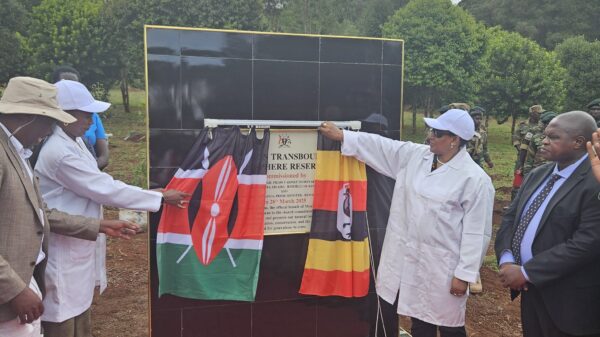The recent Africa Aviation Innovation Summit brought together leaders, innovators, policymakers, and stakeholders from across the aviation industry. This pivotal event served not only as a gathering but also as a platform to explore new ideas, foster collaboration, and address the evolving needs of the aviation sector on the continent. As Africa positions itself for future growth, the aviation industry must play a critical role in connecting the continent and enabling economic development.
In today’s rapidly changing global environment, organizations across all sectors face complex challenges and significant transformations. The aviation industry, in particular, is experiencing a wave of disruption due to technological advancements, shifting consumer expectations, regulatory changes, and economic uncertainties.
To navigate these challenges effectively, companies must adopt strategies that extend beyond traditional methods. This is especially crucial in Africa—a continent brimming with potential but often constrained by various hurdles such as inadequate funding, fragmented ecosystems, and restrictive policy frameworks.
Despite these challenges, Africa’s aviation industry is poised for growth, driven by rising passenger numbers, increased trade, and expanding connectivity across the continent. However, realizing this potential will require the industry to move beyond its current limitations. The focus must shift toward building a more resilient and sustainable aviation sector that can support Africa’s economic and social ambitions. This will necessitate the adoption of innovative approaches, new business models, and, importantly, the power of partnerships.
While the number of business incubators and innovation centers across Africa has grown significantly, the rise of successful startups, particularly in tech and aviation, has not kept pace. For instance, from 2016 to 2019, the number of active tech hubs on the continent more than doubled, growing from 314 to 618. Yet, many of these hubs struggle with monetization and long-term sustainability. This discrepancy highlights the need for more effective support systems and a shift in focus toward nurturing commercially viable solutions.
Innovation hubs are emerging as essential spaces that bridge the gap between ideation and market-ready solutions. By providing resources, mentorship, and collaborative environments, these hubs nurture creative ideas, foster cross-industry partnerships, and develop solutions to address pressing business challenges. They also play a vital role in accelerating digital transformation, which is pivotal for the aviation industry to enhance efficiency, reduce costs, and improve the customer experience.
At the heart of successful innovation is the concept of co-creation—where multiple stakeholders collaborate to develop solutions that address shared problems. Strategic partnerships are particularly powerful in driving impactful and sustainable development across industries. In aviation, co-creation involves partnerships between airlines, technology providers, regulators, and even passengers, aimed at developing innovations that improve operational efficiency, safety, and customer satisfaction.
A notable example of a successful partnership is the collaboration between Kenya Airways and Safaricom, which serves as a model for how strategic alliances can lead to meaningful advancements. By focusing on solutions such as in-flight Wi-Fi, cybersecurity, and Internet of Things (IoT) applications, these companies are not just enhancing their service offerings but are also setting new benchmarks for the industry. This collaboration illustrates how co-creation can align innovation with market demands, driving technological progress while simultaneously strengthening customer loyalty.
Such partnerships are not limited to technological solutions; they also extend to regulatory collaboration. Working closely with civil aviation authorities to develop policies that support the adoption of new technologies can expedite regulatory approvals and facilitate the faster deployment of innovative solutions.
Innovation should not be viewed as an end in itself but as a means to achieve broader societal objectives. In Africa, innovation hubs and initiatives are increasingly aligning with national development agendas, particularly those focused on economic transformation, sustainability, and social inclusion. These efforts resonate with global frameworks like the United Nations’ Sustainable Development Goals (SDGs), which emphasize building resilient infrastructure, fostering inclusive industrialization, and promoting sustainable innovation.
By aligning aviation sector initiatives with these broader goals, the industry can drive transformative solutions that benefit not just businesses but society as a whole.
Patrick Mwaura is a communication consultant at Ascent Group.


































